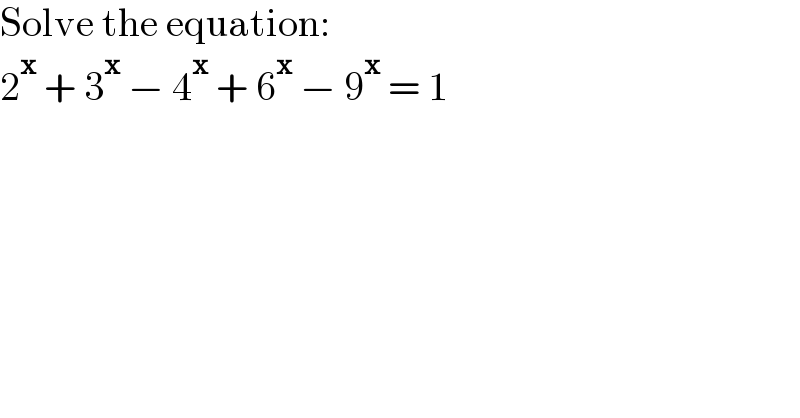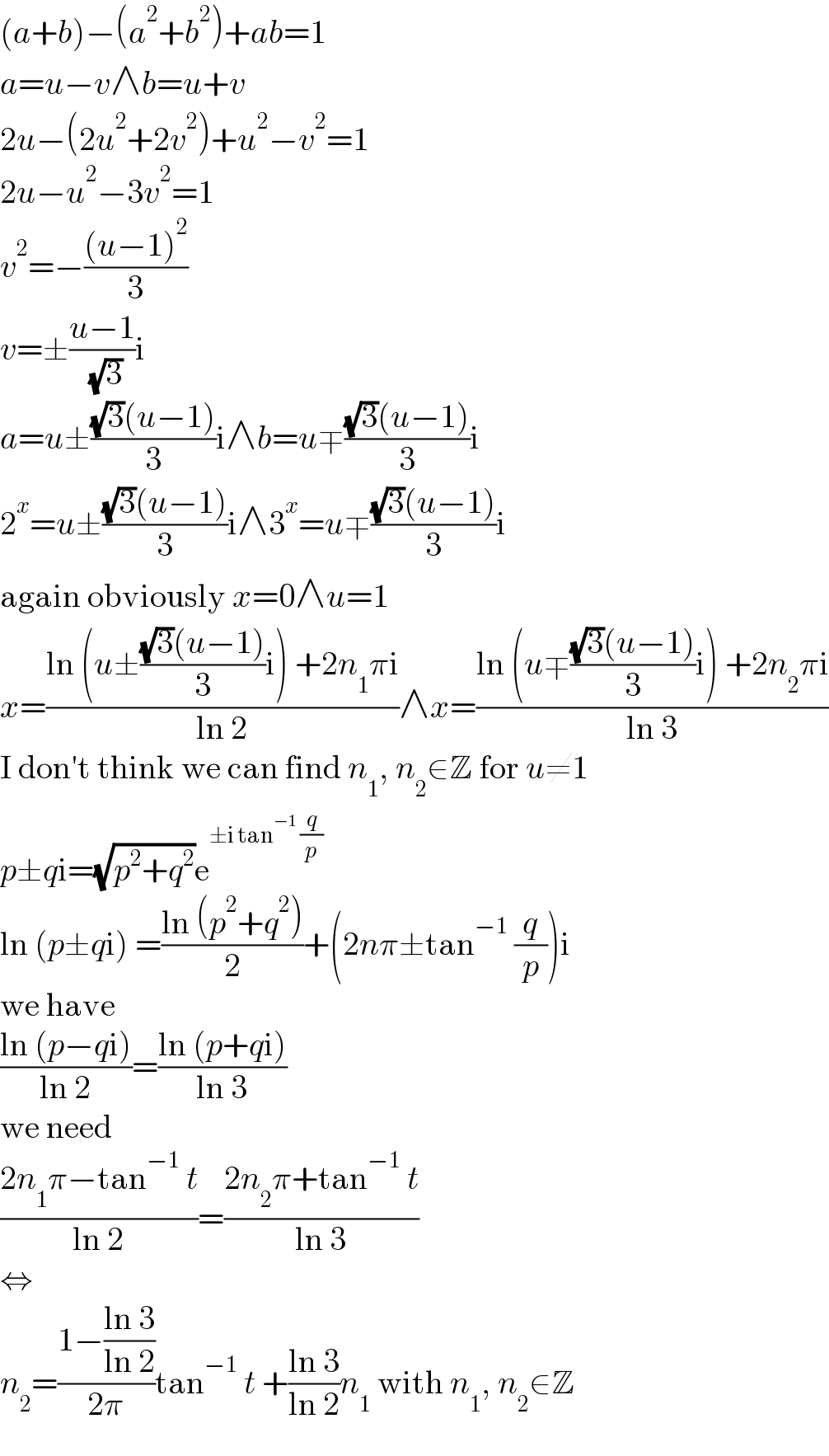
Question and Answers Forum
Question Number 176592 by Shrinava last updated on 22/Sep/22

Answered by Frix last updated on 22/Sep/22

Answered by a.lgnaoui last updated on 23/Sep/22
![posons a=2^x b=3^x a^2 =2^(2x) b^2 =3^(2x) ab=2^x 3^x =6^x (a+b)−(a^2 +b^2 )+ab=1 (a+b)−[(a+b)^2 −2ab]+ab=1 (a+b)−(a+b)^2 +3ab=1 (I) 2^x +3^x −(2^x +3^x )^2 =1−3×6^x (2^x +3^x )(1−2^x −3^x )=1−3×6^x (2^x +3^x )(2^(2x) +3^(2x) )=3×6^x −1 (2^x +3^x )[(2^(2x) +3^(2x) +2×6^x )−2×6^x ]=3×6^x −1 (2^x +3^x )^3 −2×6^x (2^x +3^x )=3×6^x −1 3ab=1+(a+b)^2 −(a+b) 3×6^x =1+(2^x +3^x )^2 −(2^x +3^x ) (2^x +3^x )^3 −2(2^x +3^x )((1+(2^x +3^x )^2 −(2^x +3^x ))/3)=(2^x +3^x )^2 −(2^x +3^x ) on pose (2^x +3^x =z) z^3 −(2/)(([z(1+2z^2 −z])/3)=z^2 −z z^2 −((2(1+2z^2 −z))/3)=z−1 3z^2 −4z^2 +2z−2=3z−3 z^2 +z+1=0 z=0 2^x =−3^x (−(2/3))^x =1⇒x=0 Δ=1−4=[(√3) i]^2 z1=((−1±(√3) i)/2) 2^x +3^x =(1/2)+((√3)/2)i 2(2^x +3^x )=1+(√3) i ....solutions via coshx ?](Q176601.png)
Commented by Shrinava last updated on 23/Sep/22

Commented by Frix last updated on 23/Sep/22

Commented by a.lgnaoui last updated on 23/Sep/22

Commented by Tawa11 last updated on 23/Sep/22

